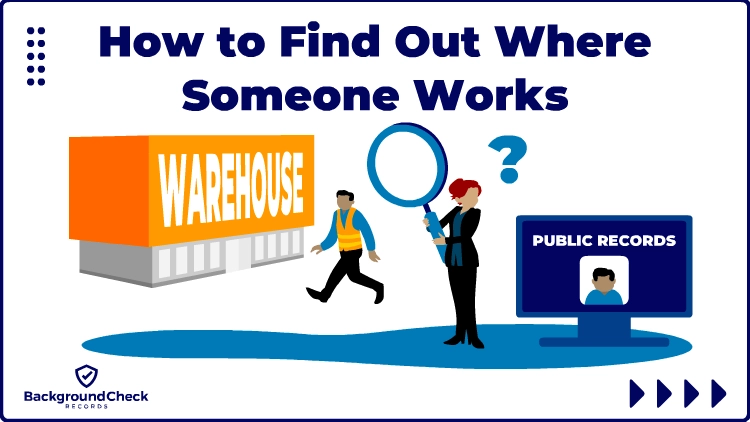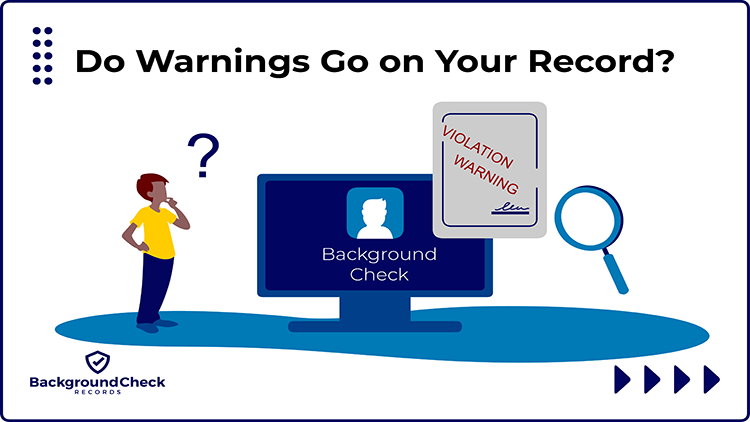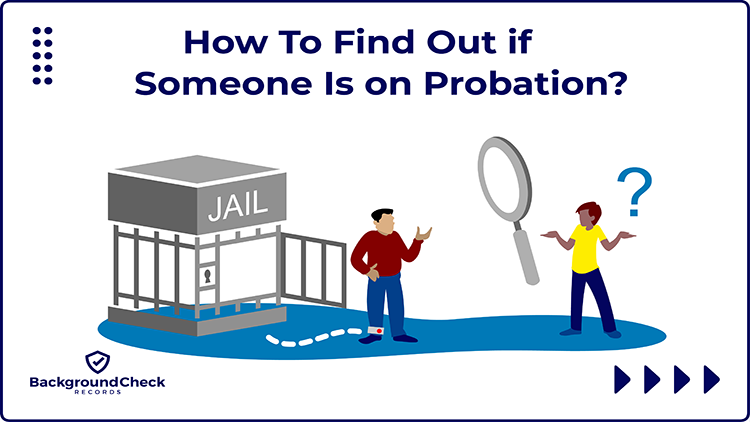How To Find Out Where Someone Works Free for Any Reason
Learn how to determine where someone works by conducting a search immediately or by consulting public records available through local, state, and federal government agencies.
Most of these records can be searched for free and for any reason, but the process isn’t always straightforward due to the record-keeping agency and process differing between jurisdictions. Luckily, this free guide will simplify the process by showing searchers exactly where to look and how to find someone’s place of employment.
So whether you’re curious about someone’s career path, a spouse looking to collect unpaid child support, looking to hire a new employee, verify employment for an apartment, or a lender hoping to collect on unpaid debt, look no further and start checking the government agencies below.
Note, professionals must abide by the Fair Credit Reporting Act when looking into public records for professional purposes (i.e. housing, employment, licensing, etc.).
Is It Possible To Find Out Where Someone Works for Free?
It is possible to find out where someone works, and while the options may not always be free or open to the public, many ways are accessible at no charge. Finding someone’s employment history can take a great deal of time and research when the individual does all the leg work.
Free resources can include things such as social media searches or reviews of licensing information or other professional websites. This can be time consuming, and the information on social media should always be viewed as potentially outdated or incorrect.
Resources that may or may not be free, or may not be publicly accessible, include government databases and using commercial, third-party search sites that specialize in background checks and verifications. However, these methods can be utilized to locate someone’s workplace for child support, alimony, or other purposes.
How to search records both free and paid searches, and how to legally use the records, is discussed in more detail in the next sections.
How Can I Find Out Where Someone Works? How Can You Find Out Where Someone Works?
Finding someone’s employment can be a daunting and difficult task, but it is doable. There are some bits of information that can help narrow down search results if the searcher is doing all the legwork themselves.
Information that is helpful to find someone’s employment include:
- Knowledge on how to find someone’s middle name, full name, or aliases,
- Field the person works in, for example, nursing, accounting, retail,
- If the profession requires licensure,
- Is the job a public (government) or private (corporation) sector job,
- If the subject has a social media presence.
Through the next sections, how to locate a person’s place of employment will be discussed in detail. A quick name-based Google search of the subject may reveal where the person works in the search returns.
Check Public Records to See If Someone Works for the Government
At times, local, state, and federal governments may release employee rosters or offer online public search platforms for government staff to promote transparency to the public, enabling individuals to determine the workplace of government employees. These databases are a great place to start if the subject works in the public field.
To search for a federal government employee, do the following:
- Open a search engine, such as Google.
- Type [government agency name] staff directory for the agency believed to be the person’s employer. For example, if someone wanted to see if a person worked for the Department of Veterans Affairs, they would type Department of Veterans Affairs staff directory in the search bar. This would lead the searcher to the official VA website staff directory page where the person conducting the search could search each region by clicking on the state where the subject is believed to work.1
- Review the search results to see if that agency has an online employee directory on its official website. If no directory is available on the website, call the information number listed on the home page.
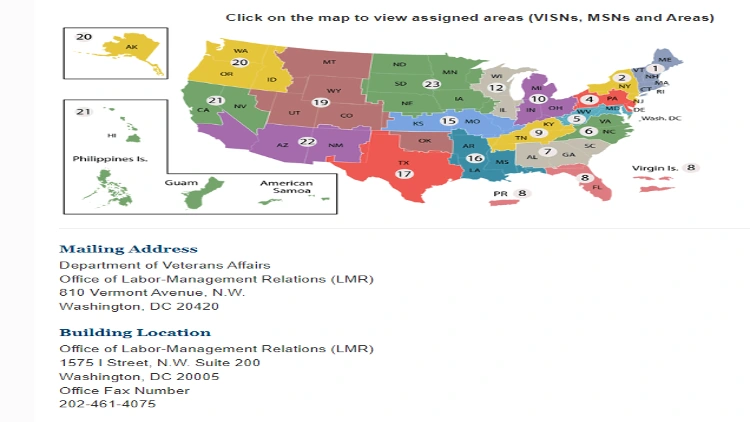
State government agencies may also have similar databases that can be accessed by the public to see who works for that department. The table below links the state employee directory for each state:
*State does not allow online access of public employee information, only agency contact information is published on the website.
Local governments may also publish staff directories that can be accessed online by the public. These include sheriff’s offices, police departments, county clerks or other officials that conduct local government business.
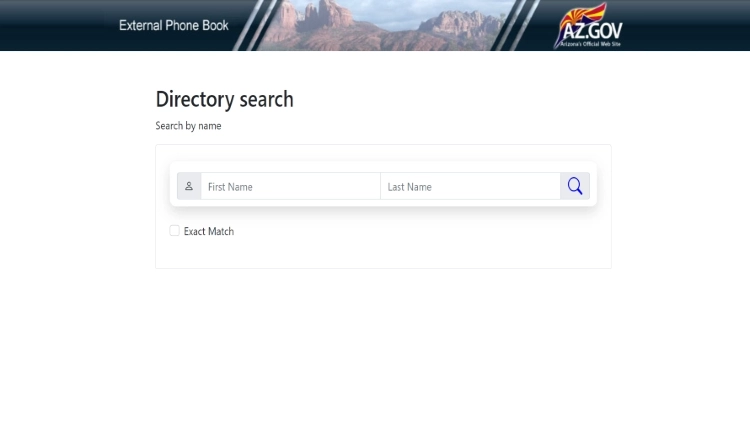
When searching government directories, it is good practice to call the number listed to verify that the person still works for that agency. Also, common names show someone with that name works for the agency, but it may not be the subject of the search.
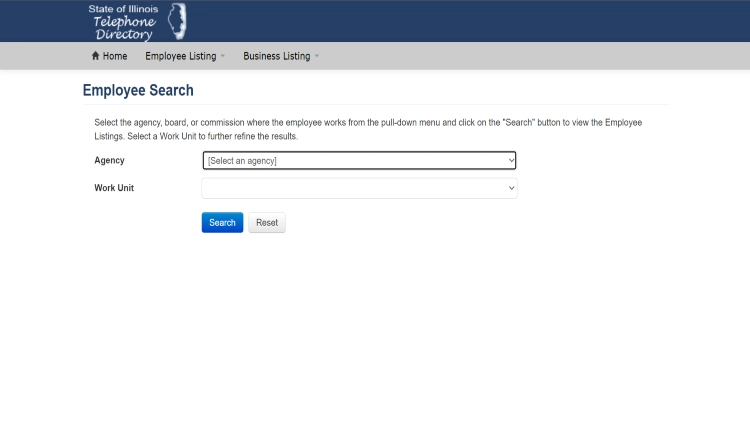
Official agency websites may have delays in updating directories as well.
Use Occupation Licensing Boards To Narrow Down Their Place of Employment
Another way to find out where someone works is to use licensing boards in the state where the person is believed to be employed if their position or field requires licensure. Determining if someone is licensed to practice in a field can help narrow the scope of the search allowing for a better chance of locating the place of employment. In some cases, the search can even show you where the person works or the region where they applied for the license.
Occupational licenses must be applied for, renewed on a schedule set by the state and on file at all times, and the public has the right to make sure a person in a licensed profession is legally authorized to work in that profession or if the person has been the subject of disciplinary action.
To search licensure boards, do the following:
- Open a search engine such as Google or Bing.
- Type “[state name] [profession or job] [search for license].” For instance, if someone wants to locate a doctor in Maine they would type Maine doctor search for a license to be directed to the License Verification page for the Maine Board of Medicine.
- Find the official state licensing board website and click the link for that page.
- Enter the subject’s name to see if they are licensed to work in that field in that state.
Once you determine the person is licensed in that state, you can review the information on the website to see if the place of employment is listed or other information (such as city listed when the person applied for a license) that may narrow down where the person works.
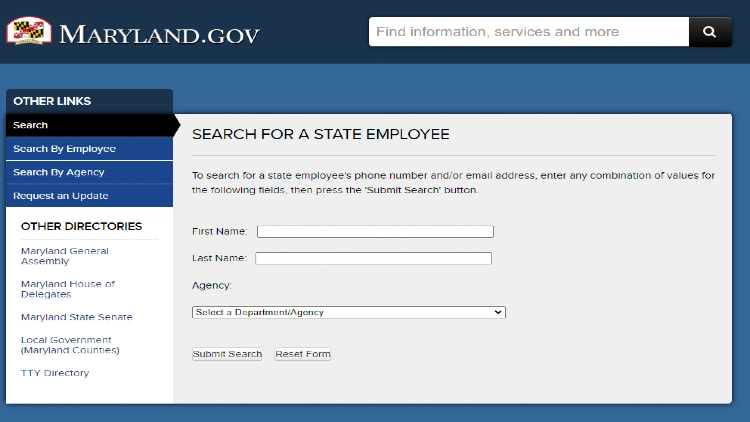
For example, if someone wants to locate a contractor in California, they would do the following steps:
- Open a search engine such as Google or Bing.
- Type California general contractor licensing board search to reach the California Department of Consumer Affairs, Contractors State License Board website.
- Click the button labeled Personnel Name to perform a name-based search.
- Enter the subject’s last name followed by the first name and click the search button.
- Match the search results with the subject and click the name to get additional details.
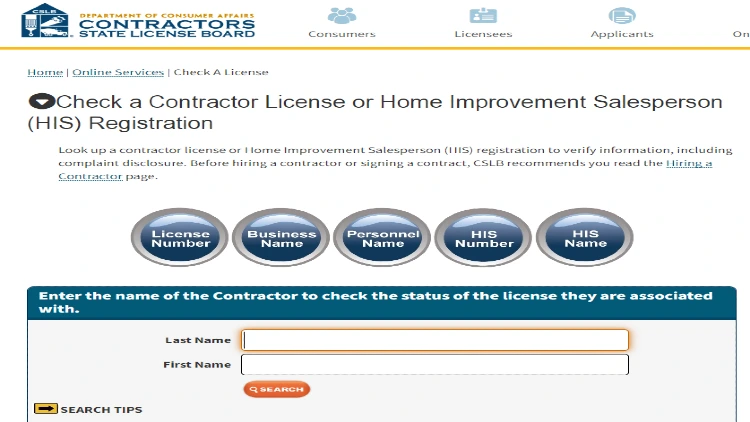
Clicking the name on this particular search reveals where the person works or worked in the past, and whether or not their license is still active.2
Another example could be looking for someone who works in the nursing field in Texas. To conduct that search, do the following:
- Open a search engine such as Bing or Google.
- Type Texas registered nurse licensing board search license to reach the Texas Board of Nursing website.
- Select the hyperlink to open the license verification portal.
- Key in the person’s last name followed by the first name.
- Select license type if known.
- Confirm the searcher is not a robot and click the search button.
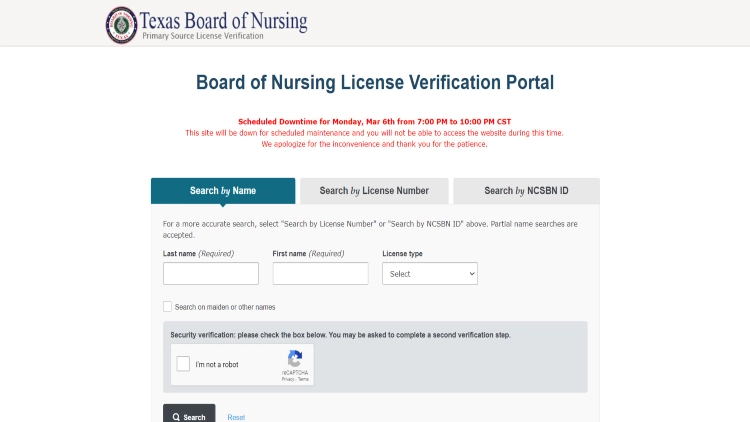
When searching for nursing licenses the search results will show if the person is licensed to work as a nurse in Texas, but does not show where the individual currently works. For that, it would be necessary to know the geographic location where the person lives and check hospitals, nursing homes, doctor’s offices or other places that employ nurses to see if the individual works at any of those locations.3
Searching licensing data on someone is a free search provided by the state government as a resource for citizens to avoid being scammed or to make sure a provider has not been sanctioned for any reason. Licensure searches can also show if someone works for an agency or business or is a self-employed contractor.
Sole proprietors and small business owners can also be located through official government resources discussed in the next section.
Locate Someone’s Business Address Through the Attorney General Office & Business License Documents
Independent contractors in a state are often required to register with the state attorney general’s office. The AG office tracks self-employed, independent contractors and processes consumer complaints against these individuals when one is made.
To search a state attorney general’s office self-employment or independent contractor list, do the following:
- Open Bing or Google or another search engine of choice.
- Type in the search bar “[state name] + attorney general + self employed list or independent contractor search.” I.e. “Pennsylvania attorney general independent contractor search”
- Look through the top 3-4 search results for the official state website and click the link for that page. Using the same example, the query above would take you to the Pennsylvania AG office home improvement contractor registry page.
- Follow the on-screen prompts to see if a person is an independent contractor in that state.
A list of contractors with the subject’s name will appear on the screen. Match the record with the subject based on address or business name (if the individual has a registered business name other than the person’s first and last name).
The search results will show which city the contractor operates out of.4
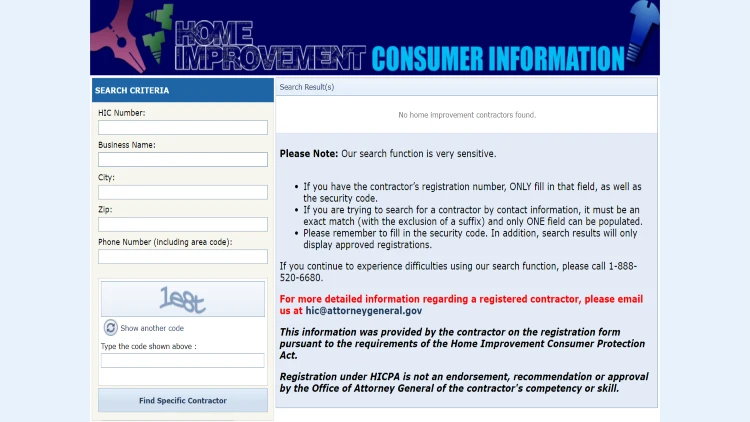
The same can be done to search for contractors in New York but the search terms would differ and you’d wind up landing on the AG website for independent contractors. Search results vary from city to city but typically show if the subject is registered in New York state, what the name of the business is if the person registered their self-employment under a business name, and a contact number for the individual.5
Searching registered independent contractors through the attorney general’s office for a state is free, and is one way to determine if a person is working in an area.
Lastly, many businesses need licensing to operate so businesses licenses can also be searched if all else fails. For example, Las Vegas Businesses licenses are published online and lists addresses as well.
Run a Background Check To See Someone’s Current Employer & Work History
Performing a background check is another method to discover where someone is employed. Paying a third-party background check agency to do a complete history on someone can reveal where they work now, and past employment as well.
In addition to employment history, individuals can find out if the subject has a criminal record and where the person resides, along with a phone number and social media presence.
It is important to make sure the vendor follows all the legal guidelines outlined by the federal and state governments, and that these report providers use government public records, as well as other publicly available records such as social media and other resources to gather comprehensive data. While using one of these sites can be costly, the information sought is typically returned in minutes.
The level of background check completed will determine how easy it is to find out where someone works.
- Name-based searches, known as Level 1 background checks, primarily concentrate on an individual’s criminal record, although they may also encompass employment verification. This type of background check is prevalent for entry-level positions.
- A fingerprint-based Level 2 background check primarily targets disqualifying offenses on an individual’s criminal record, although it may additionally entail employment and education verification.
- A Level 3 background check involves a thorough exploration of an individual’s background and is more inclined to reveal their current or past workplaces. This screening process may also encompass interviews with past colleagues or supervisors.
- A Level 4 background check is highly comprehensive and will reveal an individual’s employment history, including both past and present positions. Similar to Level 3 screenings, this type of check may involve personal interviews with individuals familiar with the individual, potentially uncovering employment not listed on a resume.
Businesses requiring bulk background checks usually seek to include employment history in the comprehensive report. Many of these checks are conducted online, enabling employment verification to be part of a batch screening process.
Discovering Someone’s Workplace Using Search Engines
Another free method to determine someone’s workplace is by conducting an online search using a search engine like Google. Doing a name-based search can help locate a person’s online footprint revealing where they work or have worked in the past.
Google also allows individuals to use a tool called search operators to help narrow down the results making them more accurate.
To use Google search operators to search for someone’s employment online, do the following:
- Open Google on the computer.
- Go to settings.
- Click advanced search.
- Type the search parameters in the box labeled: this exact word or phrase. In this case it would be the subject’s name + place of employment.
- If the person’s place of employment is listed anywhere online, it will appear in the search results.
The search results might indicate whether the individual maintains any social media profiles, which can also serve as a means to discover where someone works for free if they have disclosed their employment in their profile details or posts on their page.
Check Social Media Bios and Posts for Online Footprints
A name-based, email or telephone number search of social media platforms can show if a person uses that particular medium, and if they have listed their employment or posted about their employment on the platform. There are several different ways a person can show where they work through social media.
Here are a few well-known social media platforms and methods for discovering where someone works through them:
| Social Media Platform |
How the Platform Reveals Employment |
| LinkedIn |
Users can upload a resume and list where they work in their profile. LinkedIn is designed to match employers with potential employees, so this is an excellent source of information on where someone works. |
| Indeed |
Another employment based platform, individuals can upload a resume to Indeed that can be searched by potential employers. |
| TikTok |
While this platform doesn’t have a category for employment, this information could be added to a person’s bio, or can appear in any of the videos uploaded to the platform. |
| Facebook/Instagram |
Another popular platform, Facebook (which acquired Instagram) allows for users to add workplace (past and present) to their profile and share it with friends only or with the general public. In addition, posts on pages that are made public can reveal where a person works. |
| Pinterest |
Often thought of as only a craft site, Pinterest is another way to find out where someone works (especially self-employed individuals or small business owners). |
| Twitter |
Twitter has become a great way for potential employees to connect with companies and hiring managers, and users can add their work experience on the platform either in their profile or through tweets. |
| YouTube |
YouTube is becoming very popular for uploading a video resume that can easily be shared with hiring managers, and the platform is the second most accessed website on the internet. |
Any of these social media platforms can be found doing a name-based search through Google or another search engine. Another option is to hire someone to find the information for the agency or individual as discussed in the next section.
Hire a Private Investigator
If other methods have failed to uncover a person’s employment history, resorting to hiring a private investigator is a costly option to ascertain where someone works. When hiring a private investigator, it is also important to make sure the person is duly licensed to operate in the state as a P.I.
Private investigators do a great deal of their research into a person’s background online much like third-party search sites; however, a P.I. also has the option to physically follow the subject to see where they report for work. PIs typically charge by the hour, and can also charge a retainer fee similar to the retainer fee an attorney charges.
Retainers usually start at around $1500, and the average national hourly rate is $105, meaning if the P.I. has to put several hours into research and following the individual the cost can quickly add up.6
Searchers would still need to provide the P.I. with the same information a third-party search site would need to conduct a thorough search. P.I.’s may also request a social security number when available to help narrow the search.
Does Having Someone’s SSN Help Find Who Their Employer Is?
Possessing someone’s social security number can prove to be a valuable asset in determining their workplace, particularly when the individual or organization conducting the search has access to government websites like the IRS or the Social Security Administration. These agencies track wages and taxes, including where a person works, and can be a source of information.
It is important to note, that use of social security number to conduct a search is subject to laws, policies and procedures regarding personally identifying information such as a social security number, and that not everyone can access the records in this manner.
Personal vs Professional Background Checks: Is It Legal To Snoop Around To Find Out Where Someone Works?
Ultimately, it is legal to find out where a person works, but the methods of searching and how the information is used does have some legal limitations. Third party vendors that provide background checks must abide by the Fair Credit Reporting Act (FCRA) which limits what can be shared on a background check, how far the screening can go for certain items, and the agency must note on its website and other advertising the limits under FCRA guidelines.
When it comes to commercial use, such as employment screenings, written consent is mandatory before delving into someone’s background, as detailed in the article discussing whether background checks can be run without permission.
Additionally, individuals must not use the information obtained in an unlawful manner. For example, a person cannot use information on a person’s place of employment as a means to harass, stalk, harm or otherwise intimidate the subject.
Perpetrators of domestic violence, stalking or intimate partner violence can find themselves with additional charges if they use a background check to continue verbal, emotional, mental or physical abuse at the victim’s place of employment.
Hiring managers and agencies must also abide by the laws in each state in reference to how employment records can be used in the hiring process. Once the agency has learned where the person works through a background check or using the methods in this guide, they must still follow the laws about references and what can be asked or revealed in an employment verification.7
Agencies also require knowledge on how to locate where someone works for garnishment in certain cases, a process regulated by state laws governing both records and wage garnishment.
Understanding how to determine someone’s workplace at no cost can aid individuals pursuing child support, spousal support, or other owed funds in obtaining relief. Additionally, it can assist employers in uncovering a candidate’s employment history and current workplace. This free article aims to facilitate this process.
Frequently Asked Questions
How To Find Out if Someone Lives at an Address?
Individuals can use third-party reverse address lookup sites to see who lives at an address, or they can use sites that allow name-based searches to find a person’s address. Voter registration records can also be used to determine who lives here when searching addresses.
How To Find Where Someone Lives With a Phone Number?
Many third-party vendors allow searches by phone number, and some social media platforms allow a person to do a phone number based search (and the social media profile can show where the person lives). Online white pages websites may also reveal a person’s address.
How To Find Out if Someone Is Working?
Online searches of government websites or social media accounts can show where a person works. Another option is to hire a private investigator or contract the services of a third-party vendor to find a person’s work status and place of employment.
1 Staff Directory – Office of Labor-Management Relations (LMR). (n.d.). Veterans Affairs. Retrieved February 7, 2023, from <https://www.va.gov/LMR/Staff_Directory.asp>
2 CA Contractors License Info. (2022, August 10). CA Contractors State Licensing Board. Retrieved February 7, 2023, from <https://www.cslb.ca.gov/OnlineServices/checklicenseII/PersonnelLicenseList.aspx?SeqNumber=309780&PersName=DANIELS,%20JAMES%20LEE>
3 Texas Board of Nursing Licensing. (2023). Texas Board of Nursing. Retrieved Feb 7, 2023, from <https://txbn.boardsofnursing.org/licenselookup/?o=a3sKM1JioWd3avR7gp56JlFByka2AH5C7QzdAW9VmtM%3D>
4 Home Improvement – PA Office of Attorney General. (n.d.). PA Office of Attorney General. Retrieved February 7, 2023, from <https://www.attorneygeneral.gov/protect-yourself/home-improvement/>
5 Checking Whether a Home Improvement Contractor is Licensed. (n.d.). New York State Attorney General. Retrieved February 7, 2023, from <https://ag.ny.gov/checking-whether-home-improvement-contractor-licensed>
6 Sisemore, J. (2022, January 21). How Much Does a Private Investigator Cost: Average Pricing. Sisemore Law Firm. Retrieved February 7, 2023, from <https://www.thetxattorneys.com/blog/how-much-does-a-private-investigator-cost-and-do-you-need-one-during-divorce>
7 Employment verification laws explained | Knowledge Center. (n.d.). Truework. Retrieved February 7, 2023, from <https://www.truework.com/verifications/knowledge/employment-verification/employment-verification-laws-explained>

